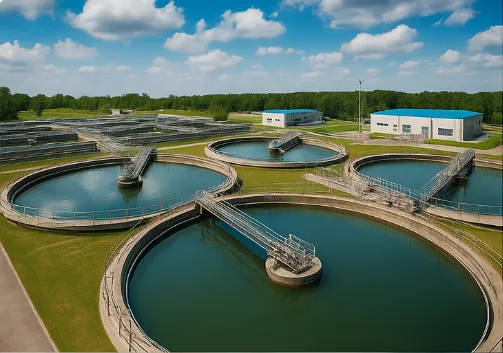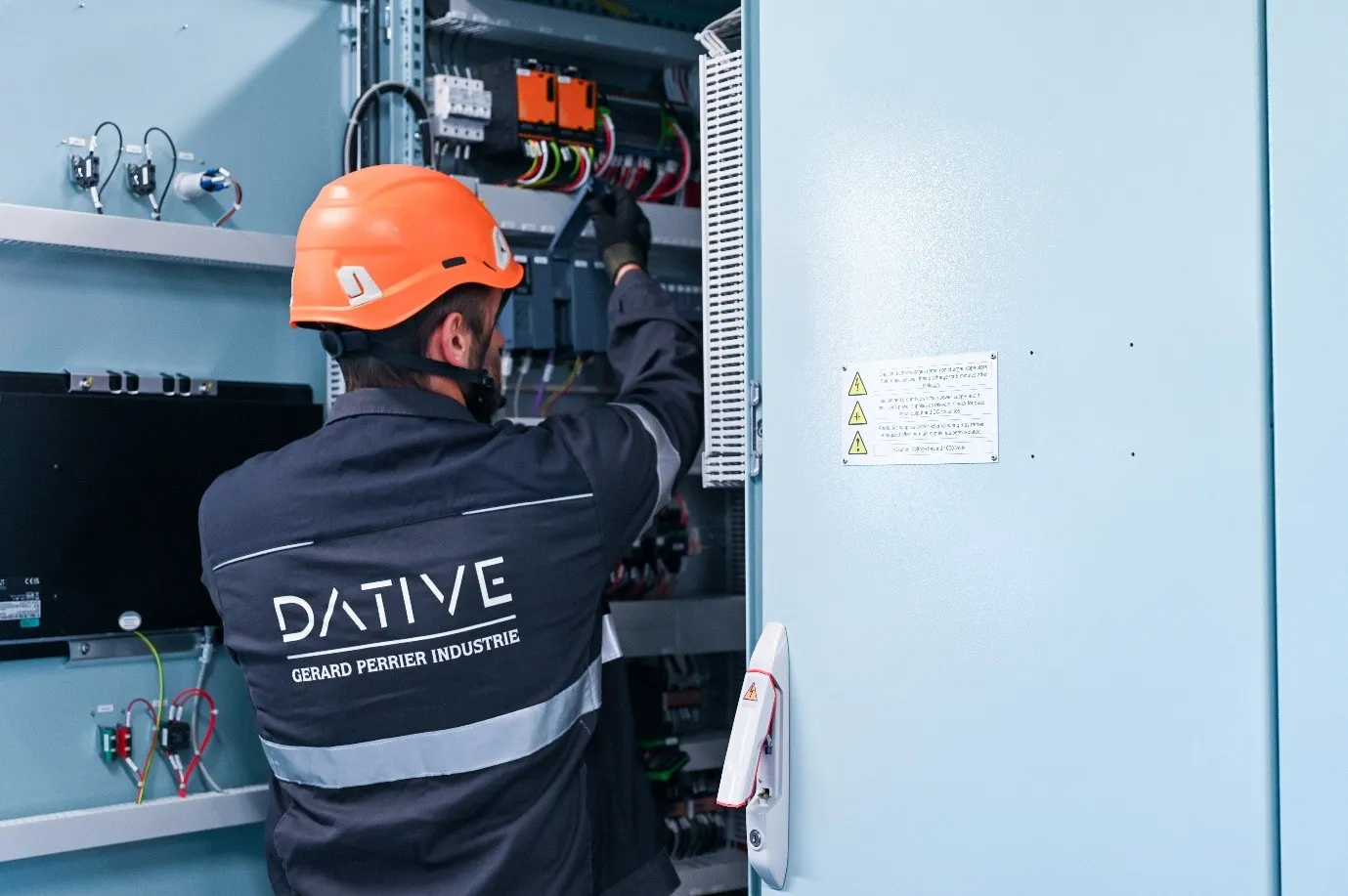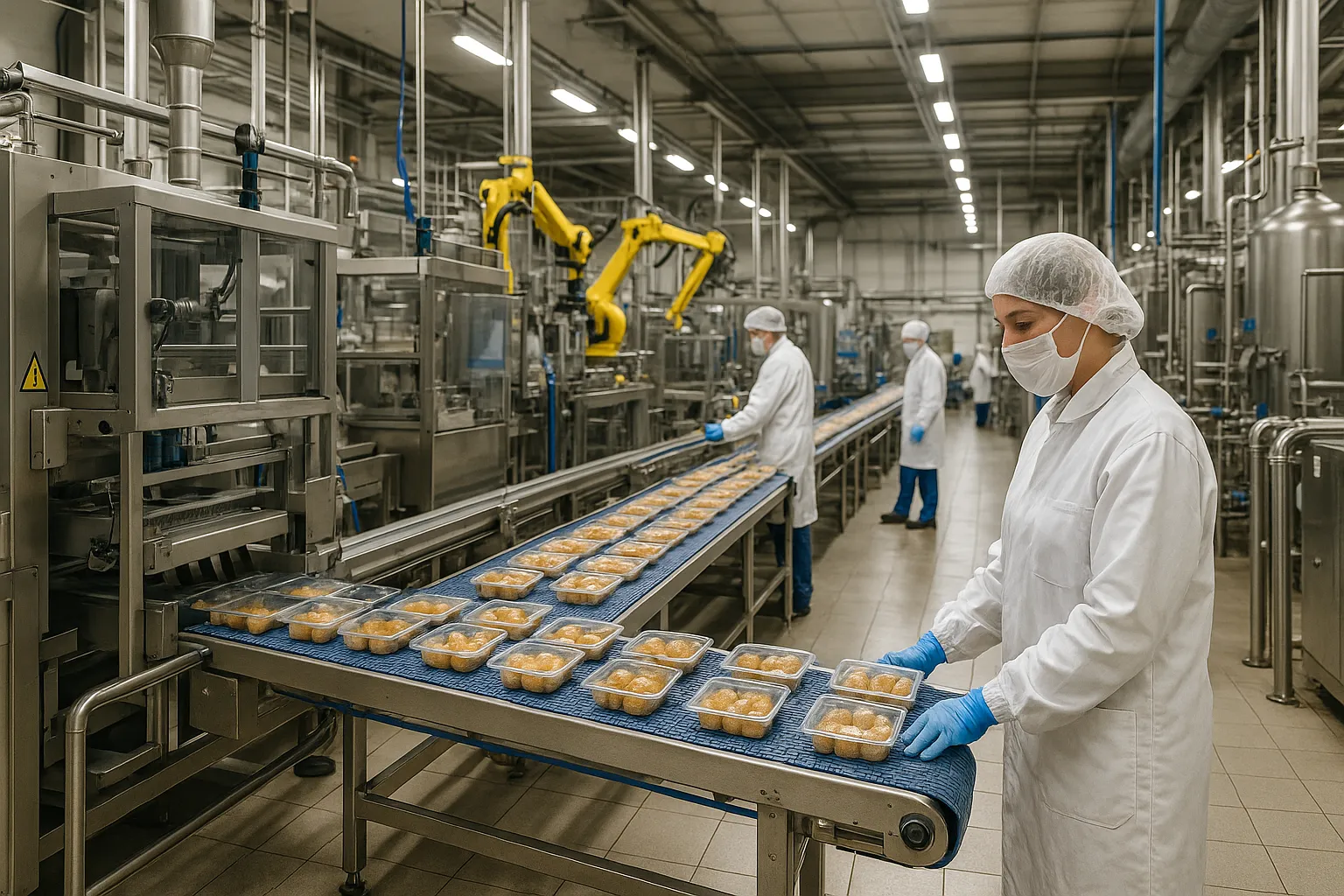
Securing an agri-food site: deployment of a workstation seal with TXOne Stellar Protect
Faced with new cyber challenges, an agri-food manufacturer north of Paris is strengthening the security of its critical workstations with TXOne Stellar Protect sealing, deployed by our DATIVE Cybersecurity experts.
A food industry company north of Paris faces new cyber challenges and calls on our teams
In a context where industrial cybersecurity is becoming a key pillar of operational performance, a major player in the food industry located north of Paris has sought our expertise to strengthen the protection of its critical production workstations.
This site, made up of several automated production lines, operates continuously to meet particularly strict production and quality requirements. Within this organization, certain computer stations integrated into the SERA machines (a subsidiary of the Gérard Perrier Industrie Group, of which we are also part) play a strategic role in the production chain. Their availability and integrity directly determine business continuity.
As part of a project carried out with SERA, a subsidiary of the GPI Group, we intervened with a clear objective: to secure these critical workstations to reduce the risk of alteration and strengthen OT resilience.
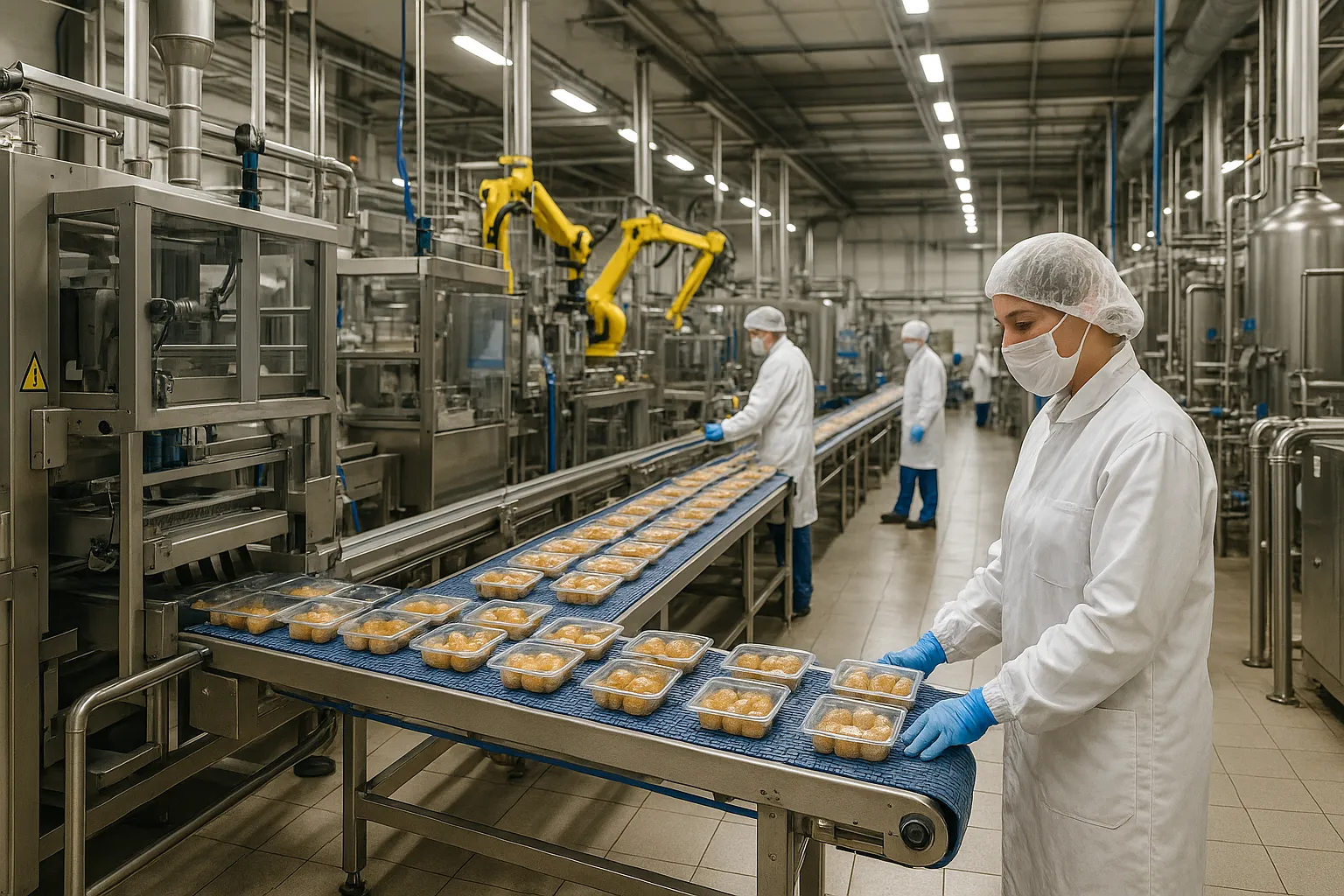
A common issue in the industry: How to protect OT processes without disrupting food production lines?
OT (Operational Technology) environments in the food industry often face a delicate balance: how to strengthen the security of industrial systems without affecting production or the stability of the equipment?
Before our intervention, the production stations, although operational, were still exposed to several risks:
- Unauthorized modifications of configurations or software,
- Risk of human error during maintenance or technical interventions,
- Lack of integrity control on certain system components,
- Vulnerability to the introduction of external devices (USB keys, mobile media, etc.)
These weaknesses could, if exploited, lead to production downtime or even impact the quality of finished products. The technical management and maintenance teams therefore wanted an effective, stable, and transparent hardening solution, adapted to their industrial constraints, without adding complexity for operators.
Are you also facing cybersecurity challenges in your industrial process? Contact us
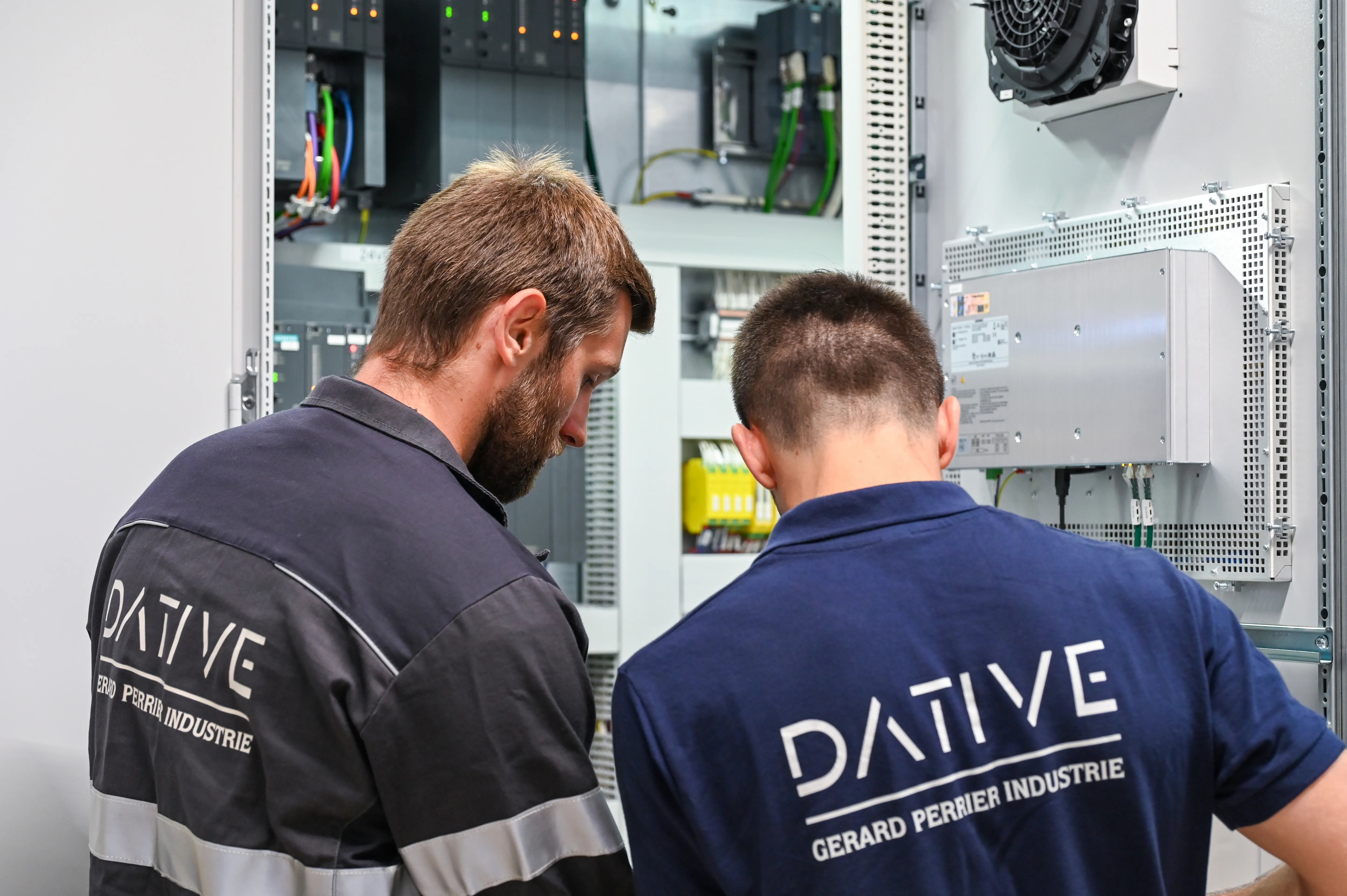
A collaborative approach with our agri-food client's teams and SERA's automation engineers
From the very start of the project, our discussions with our client's technical contacts and the SERA teams (project manager, automation engineer) made it possible to precisely define the scope of intervention and operational requirements.
Our approach was structured around three priorities:
- 1. Secure critical workstations without disrupting their operation.
- 2. Ensure full compatibility with existing industrial applications.
- 3. Enable simple and centralized supervision for local teams.
This joint approach made it possible to integrate cybersecurity as a factor of industrial reliability, rather than as an additional constraint.
Our intervention: workstation sealing with TXOne Stellar Protect
The intervention was carried out in pairs by our DATIVE Cybersecurity experts, on-site, in an active production environment.
Each workstation was first analyzed and validated during the preparatory phase to ensure full compatibility with the chosen solution: TXOne Stellar Protect.
A solution designed for OT environments
TXOne Stellar Protect is a protection technology specifically designed for industrial environments.
Unlike traditional IT antivirus or security solutions, it operates based on an adaptive whitelisting and system sealing principle, ensuring strong security without interfering with operational processes.
Its main features include:
- System lock after validated configuration: no unauthorized modification is possible
- Control of executables and processes allowed to run on the machine
- Blocking of unapproved devices (USB ports, external media, etc.)
- Monitoring and detection of abnormal behavior, even without an Internet connection
- Compliance with industrial security standards such as IEC 62443 and the NIS2 directive
This technology ensures effective hardening of OT workstations while remaining compatible with the availability and performance constraints specific to industrial environments.
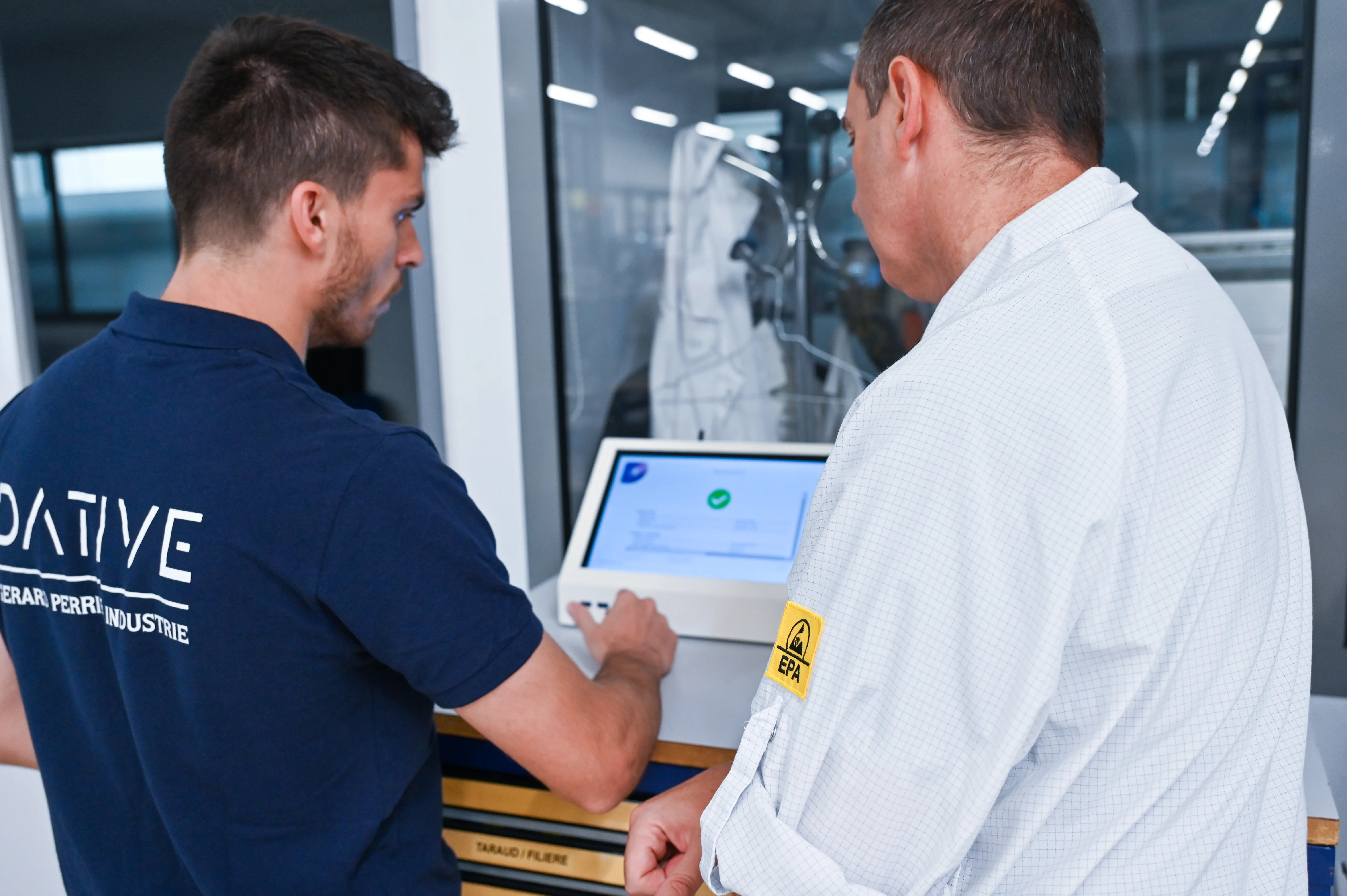
Solution deployment methodology
Our intervention followed a rigorous process, adapted to the site’s context:
- Audit and validation of existing configurations on SERA workstations,
- Installation and configuration of TXOne Stellar Protect,
- Sealing phase, with locking of critical settings and operational testing,
- Final validation with local teams,
- Knowledge transfer to ensure understanding and autonomous maintenance of the system.
The entire deployment was carried out without any production interruption, demonstrating the ability to integrate cybersecurity at the core of industrial operations.
Results: enhanced security at this site specialized in the agri-food industry
The benefits for the client were immediate:
- Critical workstations secured against any accidental or malicious alteration,
- Significant reduction in the risk of production system downtime,
- Increased peace of mind for local teams, confident in the stability of their OT environments,
- Enhanced compliance with normative and regulatory requirements (IEC 62443, NIS2).
Thanks to this approach, the site now benefits from a consistent and long-lasting level of protection on SERA production workstations.
This action is part of a broader industrial cyber-resilience strategy, where security becomes a pillar of operational performance.
Would you like to protect your food production process? Contact us
Towards a more resilient and secure food industry
Workstation sealing is a key step in hardening industrial environments. Combined with a network segmentation policy, OT supervision, and secure access management, it contributes to an effective and sustainable defense-in-depth strategy.
For players in the food industry, faced with increasing digitalization and continuous production requirements, this type of action represents a strategic investment in security, compliance, and long-term operational sustainability.
If, like this industrial company, you want to strengthen the security of your production workstations through OT sealing or hardening, our teams can support you at every stage of your journey.
Contact our industrial cybersecurity experts

